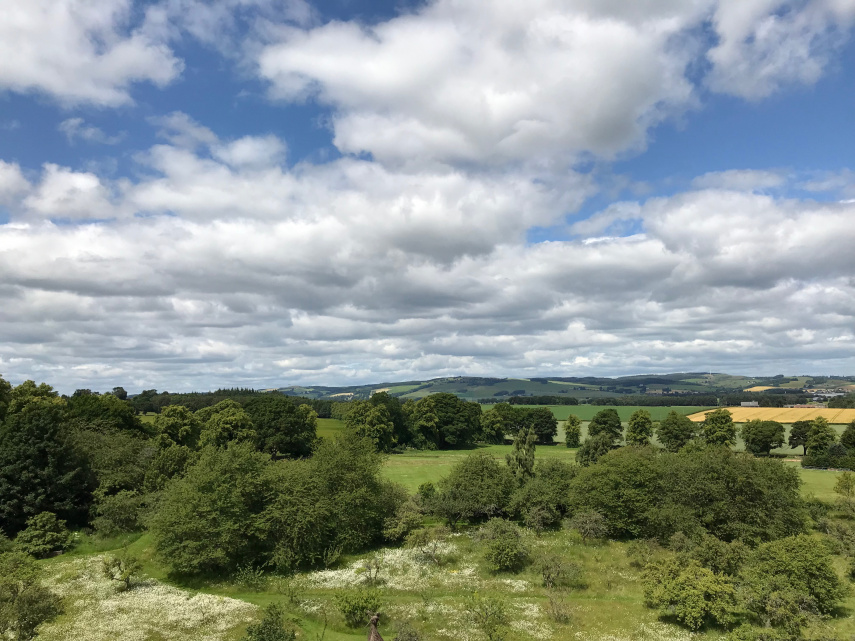Scotland’s natural capital opportunity must work in the public interest
Scotland has a big opportunity in using its land to drive a just transition to a net zero economy. New value and investment associated with carbon and natural capital can bring significant benefits if harnessed well.
This is a rapidly developing sector influencing the land market and land use decisions in Scotland, and it will be important that communities and local economies benefit and share in this value.
That is the message from Scotland’s land reform body, the Scottish Land Commission, which is working to understand the effect of carbon and natural capital in the land market to advise Scottish Government and the sector on the risks, opportunities and steps needed to ensure the market works in the public interest.
The fast growth of new carbon and natural capital markets raises some fundamental questions for how land is owned and used, who owns and benefits from carbon rights and natural capital and how land is bought and sold. The interest in the markets for carbon and natural capital are being driven in part by socially responsible investment (SRI), with organisations seeking to be increasingly climate positive.
This is already leading some companies and institutions to acquire land directly to offset emissions. Others may also be attracted at the prospect of trading carbon credits and anticipated future value. There is, however, much uncertainty in these early stages of market development.
Hamish Trench is Chief Executive of the Scottish Land Commission, a public body which is working to create a Scotland where everybody benefits from the ownership, management and use of the nation’s land.
He said: “One thing is clear – much of our land is finding new forms of value.
“With climate action our urgent challenge, Scotland is well positioned by virtue of our geography to make the most of the significant finance that governments and investors around the world are turning to in this societal challenge, creating a win-win of economy and nature benefits.
“This brings both risks and opportunities, it’s going to be important that national and local economies and communities benefit from changes and the increasing value of the land. This is the right time to be shaping these markets in the public interest.”
The Scottish Land Commission is beginning work to understand how Scotland can make the most of this national asset.
Hamish added: “Our first step is to develop a better shared analysis and understanding of the scale and nature of relevant land transactions happening on and off market at the moment.
“Improving transparency and shared knowledge is a necessary start.
“Then we need to address the question of who benefits and how carbon and natural capital values are shared productively so this value is retained in the Scottish economy. If carbon and natural capital values do grow, as those buying in early anticipate, then it’s reasonable that increases in value from a shared national resource create public as well as private benefit.
“On a more immediate note, those buying land now for carbon, just as for any other motivation, should understand that with rights in land go responsibilities. There is a clear framework in Scotland setting out these expectations in the Land Rights and Responsibilities Statement and the Land Commission’s Good Practice Protocols that support its practical implementation.
“Those looking to invest or attract investment should also consider responsible governance that engages communities in both decision making and benefit. There is no need to wait for policy or legislation to catch up, though regulatory frameworks will undoubtedly develop. It’s open to us all to shape responsible practice and set shared expectations. “
Natural Capital is to be a headline topic at the upcoming Land Commission conference, Land Connection 2021.
The three-day conference, which takes place from Monday 4 October to Wednesday 6 October, will bring together experts from across a range of industries including public bodies, local authorities, academia, housing sector, private sector, and social enterprises to look at the role of land in helping to achieve some of Scotland’s big ambitions for the economy, climate and communities.
Through a mix of webinars, panel discussions and workshops, the conference will explore how Scotland can continue to evolve and modernise the ways land is owned and used to tackle the climate emergency, benefitting the economy and supporting communities.
The conference will open with a keynote address by Scottish Government Minister for Environment, Biodiversity and Land Reform, Màiri McAllan MSP, who will set out the government’s bold ambitions and priorities for land reform.
For more information on the conference, including the full programme and details of how to book, visit www.landcommission.gov.scot.

